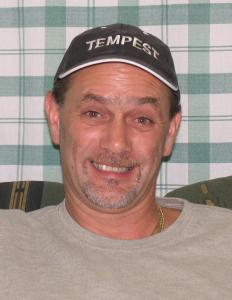Stephen Lacombe

The Working Waterfront Festival Community Documentation Project
This project documents the history and culture of the commercial fishing industry and other port trades. The project began in 2004 in conjunction with the Working Waterfront Festival, an annual, educational celebration of commercial fishing culture which takes place in New Bedford, MA. Interviewees have included a wide range of individuals connected to the commercial fishing industry and/or other aspects of the port through work or familial ties. While the majority of interviewees are from the port of New Bedford, the project has also documented numerous individuals from other ports around the country. Folklorist and Festival Director Laura Orleans and Community Scholar and Associate Director Kirsten Bendiksen are project leaders. The original recordings reside at the National Council for the Traditional Arts in Maryland with listening copies housed at the Festival's New Bedford office.
Azure Dee Westwood
Stephen Lacombe is a male lumper from New Bedford, MA. He was born in Fall River and was introduced to the profession of lumping by his stepfather, who was also a fish lumper. Stephen's brother, Ed, also worked as a lumper before becoming a firefighter in New Bedford. Stephen has been working as a lumper since he was eighteen and is currently the President of the lumpers Union. Despite initially not intending to make a career out of lumping, Stephen has been in the profession for over 25 years.
Scope and Content Note
This interview with Stephen Lacombe, conducted by Janice Fleuriel on September 23, 2006, provides an in-depth look into the life and work of a lumper in New Bedford, MA. Lacombe discusses his personal and family background, including how he and his brother were introduced to the profession by their stepfather. He also talks about the challenges and dynamics of the job, including the 24/7 nature of the work, the physical demands of unloading fish, and the coordination required to service all the boats. Lacombe also discusses the role of the lumpers Union and its relationship with the Mayor and the city. He shares his hopes for a city-run public auction on the waterfront. He also talks about the changes in the industry, including the shift from a public auction to a display auction and the impact this had on the lumpers' work. The interview also provides insights into the types of fish they handle, such as whiting, and the different methods used for unloading different types of fish. Lacombe also discusses the differences between scallopers and draggers and how this affects the need for lumpers. Throughout the interview, Lacombe shares anecdotes and personal stories, providing a vivid picture of the life and work of a lumper in New Bedford.
Please Note: The oral histories in this collection are protected by copyright and have been created for educational, research and personal use as described by the Fair Use Doctrine in the U.S. Copyright law. Please reach out Voices@noaa.gov to let us know how these interviews are being used in your research, project, exhibit, etc. The Voices staff can help provide other useful resources related to your inquiry.
The NOAA mission is to understand and predict changes in climate, weather, oceans, and coasts, to share that knowledge and information with others, and to conserve and manage coastal and marine ecosystems and resources. The Voices Oral History Archives offers public access to a wide range of accounts, including historical materials that are products of their particular times, and may contain offensive language or negative stereotypes.
Voices Oral History Archives does not verify the accuracy of materials submitted to us. The opinions expressed in the interviews are those of the interviewee only. The interviews here have been made available to the public only after the interviewer has confirmed that they have obtained consent.
